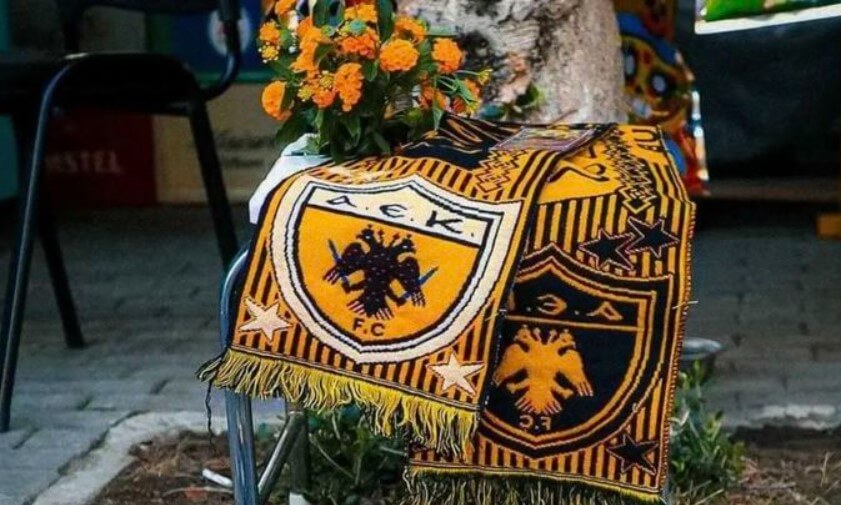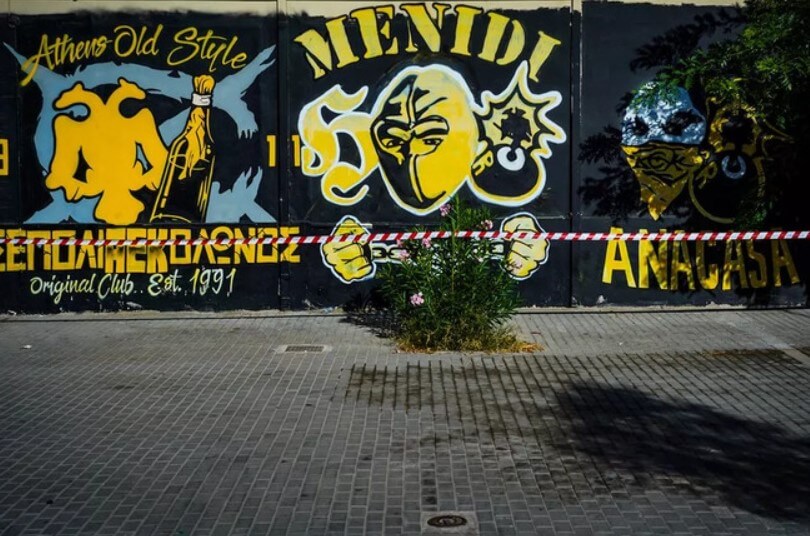
The allure and passion that surrounds the UEFA Champions League, an epitome of European football, was unfortunately overshadowed by a dark incident recently. A tragic altercation between Greek and Croatian fans has compelled the postponement of a pivotal match.
The Incident
It was a scene far from the beautiful game. On a fateful night in Athens, a brawl broke out between passionate supporters of both sides, leading to the loss of a young life. A 29-year-old fan, devoted to AEK, was fatally injured amidst the chaos. This event has cast a grim shadow over the upcoming matches and raised questions about fan safety and security measures.
“UEFA deplores in the strongest possible terms the appalling incidents that took place in Athens last night and resulted in the loss of a life.” – European football’s governing body
Timeline of the Night’s Events:
- Pre-brawl: Despite movement restrictions, a large group of Dinamo fans (estimated between 150-200) made their way into Greece.
- Weapons: As per police reports, the confrontation involved the use of bats, sharp instruments, and even stones.
- Arrests: A sweeping action by the police led to the arrest of 98 individuals.
Casualties
While the death of the AEK supporter has understandably grabbed headlines, it’s essential to note that other fans were also injured in the turmoil. A total of eight injuries have been reported, with the nature of the injuries ranging from stone-inflicted wounds to more severe traumas.
| Victim Profile | Nature of Injury |
| AEK Supporter (29 years old) | Fatally Injured |
| Minor | Injured by a sharp object |
| Six others | Various injuries |
Official Reactions and Actions
Greek officials have been prompt in their response. An internal investigation is already underway to delve deeper into the night’s occurrences.
Giannis Oikonomou, Greek Minister of Citizen Protection, was vehement in his response:
“I would like to express my sincere condolences to the relatives of the young man who lost his life unjustifiably.” – Giannis Oikonomou
Oikonomou went on to address the broader security lapses, highlighting several administrative changes. To ensure such events don’t repeat, he revealed that several high-ranking police officers, including those specially trained for sports venue violence, had been relieved of their duties. The Minister did not mince his words, emphasizing the “unacceptable” breach by the Dinamo Zagreb fans and the failure of the police force to avert the tragedy.
Subsequent Game Updates:
The violent clashes led to significant rethinking on game schedules:
- The AEK vs. Dinamo Zagreb match, initially set for a Tuesday showdown, has been postponed.
- UEFA confirmed the rescheduling, hinting at either Friday, August 18 or Saturday, August 19 as potential dates.
- The subsequent second leg in Zagreb remains as planned.
- Notably, no away fans will be permitted in both fixtures.
- The UEFA Super Cup final remains unaffected and will proceed as scheduled.

A Historical Glimpse: Tragic Events in Football
The recent altercation between Greek and Croatian fans is not an isolated incident. Football, as the world’s most popular sport, has unfortunately seen its fair share of violent confrontations and tragedies. While the passion of fans is commendable, it has sometimes led to dire consequences.
1. Heysel Stadium Disaster (1985)
Before the European Cup final between Liverpool and Juventus in Brussels, a confrontation between rival fans led to a wall collapsing, crushing fans in the process. The tragic event resulted in the deaths of 39 supporters, primarily Juventus fans.
2. Hillsborough Disaster (1989)
One of the darkest days in English football, 96 Liverpool fans lost their lives during an FA Cup semi-final match against Nottingham Forest. The incident was primarily due to overcrowding, leading to a fatal crush.
3. Port Said Stadium Riot (2012)
Following an Egyptian league match between Al-Masry and Al-Ahly, violent clashes erupted between supporters of the two teams. The riots led to the unfortunate deaths of 74 individuals, with more than 500 fans getting injured.
4. Accra Sports Stadium Disaster (2001)
A league match in Ghana between Accra Hearts of Oak and Asante Kotoko turned tragic when police fired tear gas to control rioting fans. This led to a stampede, causing the deaths of 127 supporters.
5. Estadio Nacional Disaster (1964)
During a match between Peru and Argentina, a controversial decision by the referee led to an uproar among the fans. The subsequent police action and chaos led to a stampede, resulting in the death of more than 300 fans, marking one of the deadliest events in football history.
6. Bradford City Stadium Fire (1985)
A small fire, which began as a dropped cigarette, quickly turned into a massive blaze at Valley Parade during a game. The fire tragically took the lives of 56 individuals, with several more getting injured.
7. Kayseri Atatürk Stadium Incident (1967)
Following a promotion playoff match in Turkey, clashes between rival supporters led to a significant loss of life. Reports suggest that 40 fans died due to a resulting fire and stampede.
8. Luzhniki Disaster (1982)
During a UEFA Cup match between Spartak Moscow and HFC Haarlem, a late goal caused fans to rush back into the stadium. The icy stairways led to multiple fans slipping, causing a stampede where at least 66 fans lost their lives.
Conclusion
These events serve as a grim reminder of the responsibility that governing bodies, clubs, and security agencies bear. While football brings joy to millions globally, the safety and well-being of fans should always be paramount. Collaborative efforts between clubs, security agencies, and fan groups can go a long way in ensuring that stadiums remain a place of celebration, not mourning.































